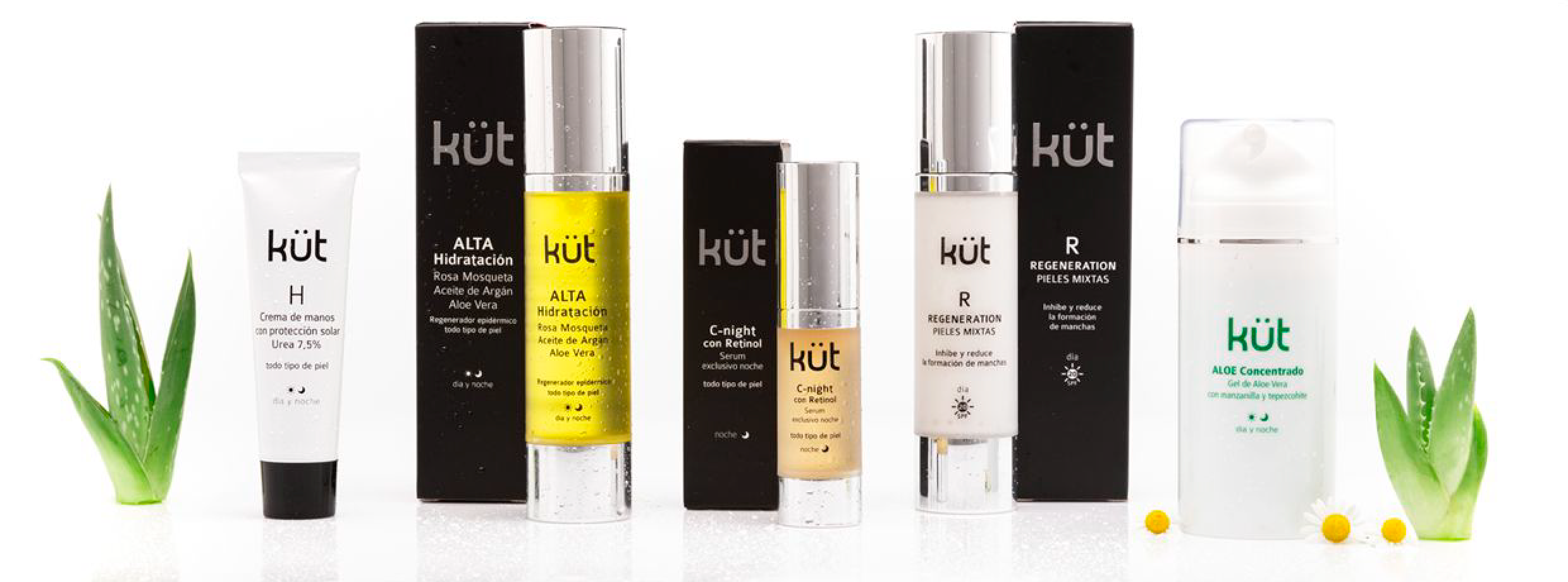Daytime Facial Moisturizer
For combination and oily skin, very sensitive skin with SPF 20
Indications: For individuals who have suffered from any type of acne. For skin that experiences inflammatory reactions to most creams and cosmetics.
Application Method: Apply daily to the face and neck with a gentle massage, twice a day.
Properties: High regeneration and hydration index for the skin, sunscreen based on zinc oxide and titanium. Contains arbutin, which reduces and inhibits the formation of facial skin spots. High sun protection factor. Contains jojoba oil to regulate sebum production and arctium lappa to reduce inflammatory processes.
Aloe Vera: A plant used for medicinal purposes. It has emollient and moisturizing properties. In natural cosmetics, it is used as a healing agent, disinfectant, and toner. It expels bacteria and fat deposits that clog pores, making it a good ally for oily skin.
Jojoba Oil: An oil very similar to sebum, which is why it is absorbed and acts quickly. It is very safe to use because it does not clog pores. It has a high content of beneficial minerals and vitamin E. It is antibacterial.
Vitamin E: A natural antioxidant that protects the skin from free radicals and aids the healing process. As vitamin E is absorbed by the skin's epidermis layer, it can be used to treat or protect against sunburn. It can also be used to treat scars, stretch marks, acne, and wrinkles, accelerating cell regeneration. This creates an anti-aging effect, making the skin look younger.
Arctium Lappa: A purifying plant. Very useful in dermatological treatments such as seborrheic dermatitis, acne, eczema, and psoriasis.
Arbutin: A skin depigmenting plant.
Zinc Oxide (physical sunscreen): A chemical used in acne treatments for its antibacterial and anti-inflammatory properties. Absorbs excess oil from the skin that clogs pores and causes acne. Also used as a sunscreen because it does not get absorbed into the skin but rather covers the skin's surface to form a protective barrier against ultraviolet radiation from the sun.
Titanium Dioxide (physical sunscreen): Sunscreen. Along with zinc oxide, it is one of the most commonly used sunscreens in medical cosmetics because it causes less irritation than chemical ingredients with UV absorbers. Ultraviolet rays bounce off and do not penetrate the skin.
Octyl Methoxycinnamate: Sunscreen to reduce and eliminate skin spots.
Imidazolidinyl Urea: Antimicrobial preservative.
Cetyl Alcohol: Thickening agent.
Cetyl Esters: Emollient agent, moisturizes the skin, and enhances product penetration.
Glycerin: A humectant primarily used for skin care, helping it maintain its properties in perfect balance and retaining moisture appropriately. Accelerates wound healing.
Ceteareth 20: An emulsifier, helps to combine ingredients.
PEG-7 Glyceryl: Derived from coconut acid with thickening, moisturizing, and lubricating properties.
Benzyl Alcohol: An essential oil used as a preservative. It is produced by plants and fruits.
Sulfur: A chemical element that promotes collagen synthesis. It has antibacterial properties and is very suitable for combating psoriasis and acne. In cases of skin allergies, it acts as a soothing agent.
Dimethicone: Has emollient properties. Its lubricating power makes cream application more pleasant on the skin, facilitating spreading. When applied to the skin, the layer it forms fills in fine lines and pores, giving the skin a healthier appearance.
Linalool: A member of the alcohol group used to add fragrance to products, derived from lavender.

